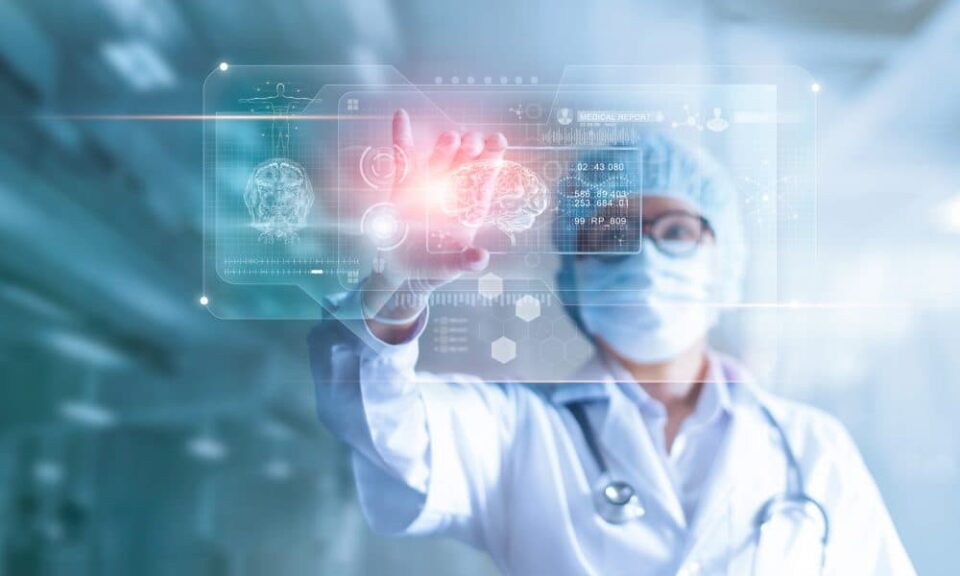Technological advancements are redefining the healthcare landscape, revolutionizing how medical professionals diagnose, treat, and manage diseases. By combining scientific innovation with advanced tools, these technologies are unlocking new opportunities to improve patient care and outcomes. Below are five transformative innovations that are bridging the gap between cutting-edge science and patient-centered care.
Artificial Intelligence: Transforming Diagnosis and Treatment
Artificial intelligence (AI) is fundamentally reshaping healthcare by providing advanced tools for diagnosing diseases and personalizing treatments. AI-powered systems analyze extensive datasets to uncover patterns and deliver highly accurate predictions. From interpreting medical imaging in radiology to crafting customized treatment plans, AI enhances the speed and precision of care delivery, resulting in improved patient outcomes. As the field continues to evolve, the potential of AI to revolutionize healthcare is vast and increasingly promising.
Telemedicine: Broadening Healthcare Access
Telemedicine is revolutionizing patient-provider interactions by eliminating geographic barriers and reducing the need for travel. Through virtual consultations, patients can access timely medical care from the comfort of their homes. This technology significantly improves access to healthcare, particularly for individuals in remote or underserved areas, while simplifying chronic condition management and follow-up care. By offering convenience and accessibility, telemedicine is making quality healthcare more attainable than ever before.
Wearable Health Devices: Enabling Continuous Monitoring
Wearable health devices, such as smartwatches and fitness trackers, have transformed personal health monitoring by providing continuous, real-time data on metrics like heart rate, physical activity, and sleep patterns. These devices empower individuals to take a proactive role in their health while supplying medical professionals with valuable insights. Wearables support remote health monitoring, early detection of issues, and preventive care, ultimately contributing to better long-term health outcomes. For instance, an Apple Watch once alerted a user in Tampa, Florida, to an irregular heart rhythm, prompting medical attention that led to a life-saving intervention. This example underscores the critical role of wearable devices in early detection and prevention.
Precision Medicine: Advancing Personalized Care
Precision medicine is revolutionizing treatment by tailoring therapies to an individual’s unique genetic profile, lifestyle, and environmental factors. Leveraging advanced genomic technologies, this approach enables the development of highly targeted therapies that optimize effectiveness while minimizing side effects. Precision medicine represents a major advancement in personalized healthcare, offering new possibilities for managing complex diseases and improving patient outcomes. It is a significant step toward a more tailored, patient-focused healthcare system.
Robotics in Surgery: Raising Standards for Precision and Recovery
Robotic-assisted surgery is establishing new benchmarks in medical technology by delivering unparalleled precision and control during complex procedures. These systems enable minimally invasive surgeries, leading to shorter recovery times, reduced scarring, and enhanced patient safety. As robotic technology progresses, its applications are expanding to various medical fields, including gynecology, orthopedics, urology, and cardiovascular surgery, transforming surgical practices and enhancing outcomes across specialties.
Pioneers such as Louis Mullie, co-founder and Chief Medical Officer of Pathway Medical, are spearheading efforts to integrate AI into clinical decision-making, revolutionizing care delivery. Louis-Antoine Mullie Pathway Medical is dedicated to utilizing technology to advance patient care and support informed clinical decision-making. Emerging technologies are transforming healthcare by enhancing accessibility, efficiency, and personalization, creating a more connected and patient-focused system for better outcomes.

